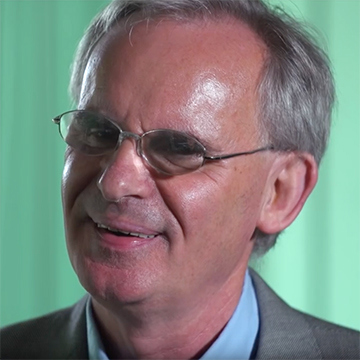Lots of overseas journalists visit the Guardian’s morning news conference at its London headquarters. Few are invited to speak and fewer still have had the impact of Berna Namata, the Thomson Foundation’s Africa specialist.
Namata, leading a group of eight Rwandan journalists on a five-day study tour to London, stunned the Guardian journalists with her opening words. Asked to talk about the state of journalism in Rwanda, the Kigali-based editor said conditions for journalists had improved. “No-one is killed anymore.”
She was listened to in silence as she described a journalistic environment far removed from the experience of most of the London-based journalists in the room.
Benefits and Challenges
The media sector in Rwanda is benefiting from a series of favourable policy decisions by government including setting up a self-regulatory body, the Rwanda Media Commission, decriminalising defamation and the enactment of the access to information law.
But challenges remain, related to limited skills and business challenges with most journalists unable to earn a decent living from their trade which makes them susceptible to “brown envelope” journalism where money is handed over to encourage journalists to write a positive story or “spike” a negative one.

Media freedom
The visit to the Guardian and other news organisations was the culmination of a programme organised by the foundation to raise journalistic standards in Rwanda and funded by the British High Commission in Kigali as part of a Foreign Office mission to support media freedom.
Emotional Exchanges
Sixty journalists took part in November in the first leg, an online exercise aimed at making more use of the country’s access to information law. From the 60, a shortlist of nine – most of them experienced journalists – was drawn up to participate in a week-long course in the capital Kigali with experts on submitting information requests, media freedom and investigative journalism. The final leg was in London.
As well as the Guardian, the journalists toured BBC Africa and Channel Four News and had lively – and at times emotional – exchanges with editors and reporters about ethics, best practices and how to cope with pressure.
At all three organisations, the meetings with journalists went well beyond the allotted time, partly from curiosity about Rwanda, partly from awareness of the 1994 Genocide Against the Tutsi, and partly from a desire to show solidarity with journalists working in difficult conditions.
There were some poignant moments. One of the Rwandans, after listening to a Channel Four editor talk about a major investigative scoop, questioned whether she deserved to describe herself as a journalist given the lack of such stories in Rwanda. The editor reassured her she was as much a journalist as she was given the restrictions she had to operate under in Rwanda.

Culpability of journalists in the genocide
There were a lot of no-holds barred conversations such as over the culpability of journalists in the genocide. The no-holds approach continued on a visit to Parliament to meet the deputy speaker in the Lords, Lord McFall, and former Conservative international development secretary Andrew Mitchell, who has made many trips to Rwanda.
Mitchell praised the Rwandan government for its success in making the country relatively secure and cautioned against Western condescension in expecting Rwanda to shift speedily to full media freedom. That might take 100 years, he said, a figure he quickly revised downwards in response to the looks of surprise from the Rwandan journalists.
Other visits included the Foreign Office, Article 19 and the Commonwealth Secretariat, the latter especially relevant because the heads of government meeting is being hosted by Rwanda later this year.

Access to information requests
As well as the visits, there were a series of courses held at Thomson Foundation's London headquarters. One participant practised the techniques he learnt during the mobile journalism course by shooting and editing video of the trip. Other courses included how to cover financial affairs – how to make sense of company accounts, contracts and the procurement process – politics and security.
Story ideas first discussed in Kigali were developed further, including some that had originated from freedom of information requests. Several of the story ideas are well-developed and should eventually be published or broadcast.
One of the impacts of the course is that the access to information legislation in Rwanda, which had been under-used since being passed in 2013, is now being tested, with hundreds of submissions over the last few months. As well as helping journalists, this also helps government officials become used to the idea they have a duty to supply information.

Ewen MacAskill
Investigative journalism
Ewen MacAskill is a Pulitzer Prize-winning former defence and intelligence correspondent for The Guardian who acts as a mentor for Thomson Foundation trainees.
Ewen MacAskill is a Pulitzer Prize-winning former defence and intelligence correspondent for The Guardian who acts as a mentor for Thomson Foundation trainees.